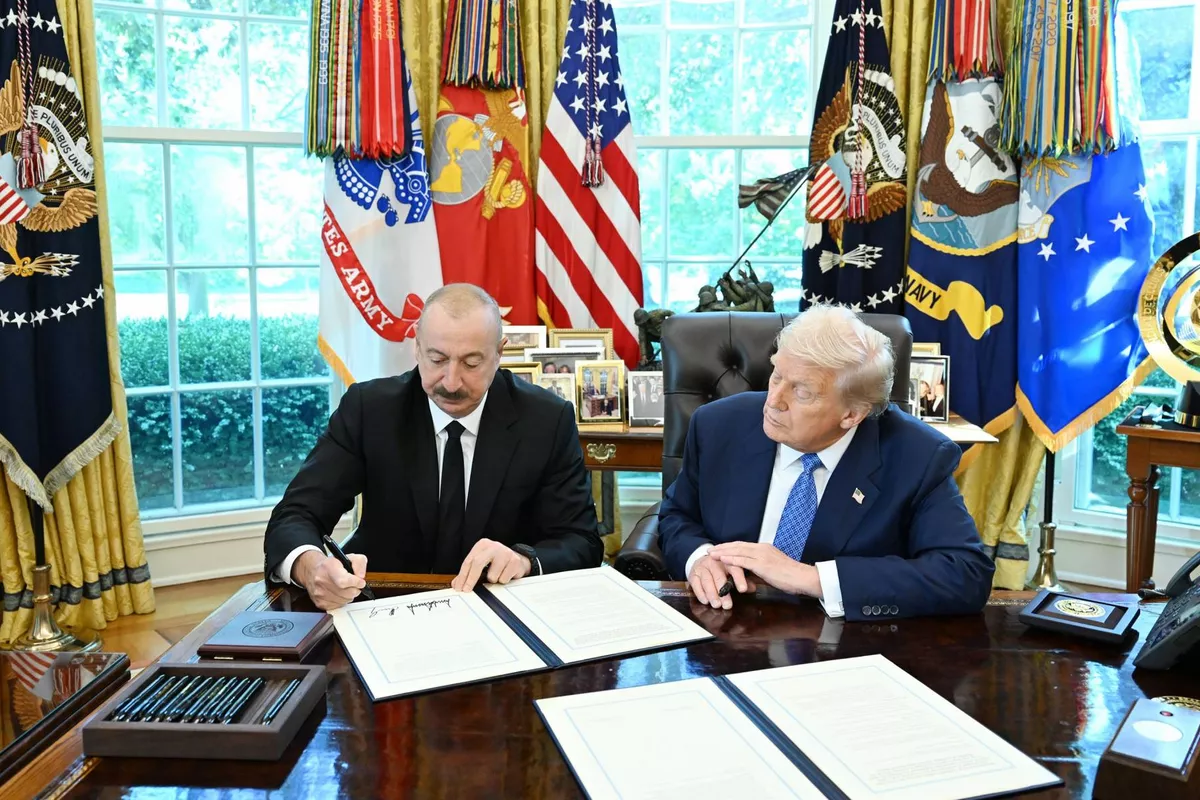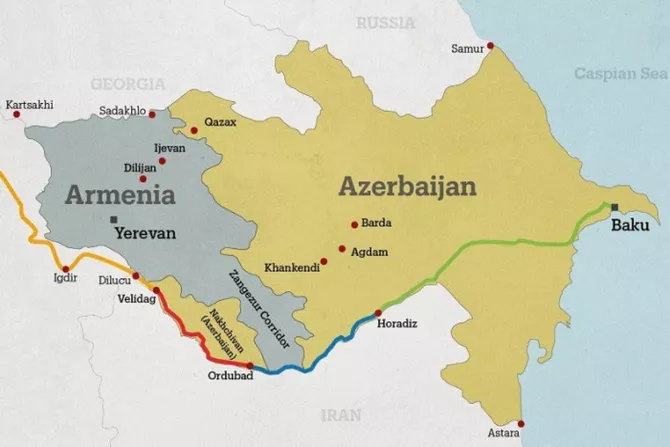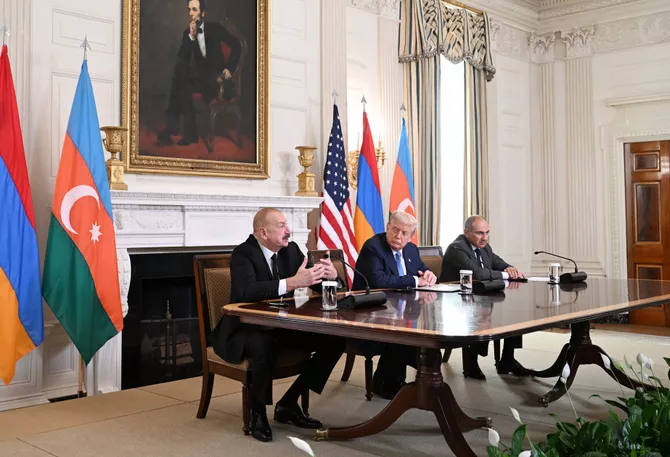
Photo: President.az
The Joint Declaration signed in the US by Azerbaijani President Ilham Aliyev, US President Donald Trump, and Armenian Prime Minister Nikol Pashinyan emphasized, among other points, the importance of opening routes between the two South Caucasus countries. This initiative is intended to facilitate domestic, bilateral, and international transportation, promoting peace, stability, and prosperity in the region and its surroundings, based on respect for the sovereignty, territorial integrity, and jurisdiction of the countries involved.
This provision specifically includes ensuring an unimpeded connectivity between mainland Azerbaijan and the Nakhchivan Autonomous Republic via Armenian territory. In facilitating these transport links through Armenia, the “Trump Route for International Peace and Prosperity” (TRIPP) will operate. As President Trump himself stated, “A special transit area will allow Azerbaijan to get full access to its territory of Nakhchivan, well, fully respecting Armenia's sovereignty.”

In this context, it is worth recalling that Clause 9 of the trilateral statement dated November 10, 2020 (Azerbaijan, Russia, Armenia) guaranteed Armenia’s commitment to secure transport routes between western Azerbaijan and the Nakhchivan Autonomous Republic, aimed at ensuring unhindered movement of people, vehicles, and transportation of goods in both directions. The document affirmed the provision for the creation of new transport routes along this path. However, under various pretexts, Armenia refused to honor the agreements. This led, in 2023, to Azerbaijani President Ilham Aliyev emphasizing Baku’s official stance that “We seek peace and cooperation in the South Caucasus. They [Armenia] should not act as a geographical barrier between Türkiye and Azerbaijan.” As the Azerbaijani president stated, “The Zangezur corridor must and will be opened. Why should we have to go to Nakhchivan, an integral part of Azerbaijan, through indirect routes? We should have a direct connection, and this connection does not challenge Armenia's sovereignty.”
The Armenia-Azerbaijan Joint Declaration, adopted in Washington on August 8, 2025, reaffirmed the importance of opening routes between the two countries. It specifically underscored the need to ensure “an unimpeded connectivity between the main part of Azerbaijan and the Nakhchivan Autonomous Republic through the territory of Armenia.” Under the agreement, Armenia “will cooperate with the US and mutually agreed third parties to develop a conceptual framework” for the Trump Route for International Peace and Prosperity (TRIPP) project, aimed at establishing transport routes within the country. Thus, as a result of the unique steps taken by the Azerbaijani president in recent years, the opening of the long-awaited Zangezur Corridor is nearing reality - and notably, through a peaceful agenda. Unsurprisingly, in his August 8 interview in Washington with the Azerbaijani journalists, President Aliyev reminded, “You know how many rumors, how many provocations we faced during this last five years from leaders of different countries, which were spreading rumors that Azerbaijan is planning to attack Armenia. Azerbaijan is planning to take that part of territory by force, and all our messages that this is false information did not work, because this perception was created, including here in Washington. And the driving force for this Azerbaijanphobia was Biden's administration.” However, all anti-Azerbaijani insinuations ultimately failed. As the Azerbaijani leader summed up, the Joint Declaration signed in the US in the presence of President Trump included a provision that precisely reflects our position: unimpeded connectivity between the main part of the Republic of Azerbaijan and its Nakhchivan Autonomous Republic.

Photo: Azertag
In this context, it is worth recalling the international dimension of the Zangezur Corridor highlighted by the Azerbaijani president less than a month ago. As he noted, when discussing the importance of linking the main part of Azerbaijan with its Nakhchivan Autonomous Republic, “we are talking about an international transit corridor.”
So let’s be frank: regardless of how the Zangezur Corridor may be referred to in international documents, the Azerbaijani president’s vision for its implementation is already within sight. This once again demonstrates how Baku consistently bases its foreign policy on the protection of national interests. This is further underscored by President Aliyev’s statements in 2021, emphasizing that the realization of the Zangezur Corridor is a historical necessity. As the president stressed, “It would happen whether Armenia wants it or not.” In 2023, he reaffirmed this stance, noting that “everything should be done in its time.”
So, when it comes to the Zangezur Corridor, an outstanding result has been achieved in Washington, hasn’t it?
Share on social media